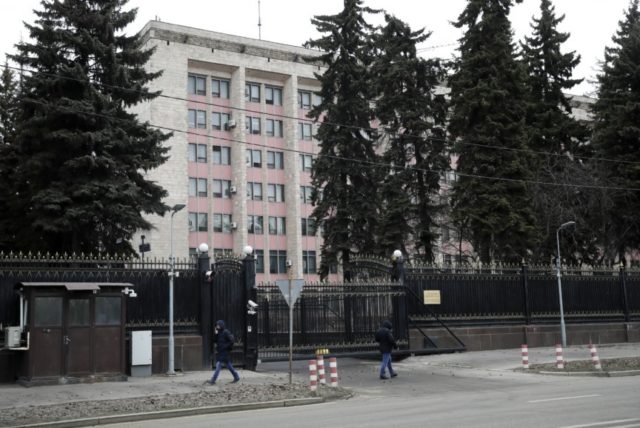Court filings and a Russian defense lawyer show that authorities in Moscow are detaining and deporting Chinese nationals for violating quarantine procedures the city government mandated in response to the coronavirus
MOSCOW (AP) — Authorities in Moscow are detaining and deporting Chinese nationals for violating quarantine procedures the city government mandated in response to the coronavirus, according to court filings and a lawyer working on at least 15 cases.
Since the beginning of the year, as many as 79 Chinese people have been taken into custody and fined for leaving their place of residence during the 14-day self-quarantine period they were ordered to observe after returning from China, defense lawyer Sergei Malik told The Associated Press.
The majority have been deported from Russia, while 27 remain at Moscow’s migrant detention facility awaiting deportation or rulings on appeals arguing the detentions were arbitrary, Malik said. About half of the Chinese nationals detained were university students, he said.
“Someone decided to target Chinese citizens,” Malik said. “Our brave police were acting on someone’s orders. No one was detaining Italians or Iranians. Just the Chinese.”
Some of the detained people from China said in court documents reviewed by the AP that they did not receive thorough explanations or know the Russian language well enough to understand the rules they had to follow while in self-quarantine.
Among the reasons given for coming out of home confinement was needing to buy groceries, obtain immigration documents or to pay for studies.
As part of the Russian capital’s strategy to prevent the new virus from spreading, Moscow officials in late February said everyone arriving from China had to observe a mandatory two-week quarantine. The city government also sent police to track down Chinese people by raiding hotels, dormitories, apartment buildings and businesses.
The AP reviewed more than 20 verdicts handed out by Moscow courts in cases involving Chinese nationals detained for evading self-quarantines in the past month. The judgments were available on the city’s court system website.
In half of the cases, the addresses of where police detained the suspects matched the addresses of where the Chinese nationals were supposed to be quarantined but didn’t include apartment numbers. The defendants in several cases claimed they had been falsely accused of leaving their apartments or were lured out by police officers.
Moscow police did not respond to a request for comment.
Information on the website of Moscow City Hall states that failing or refusing to observe self-quarantine is subject to criminal prosecution if the violation leads to mass infections and deaths. The website doesn’t mention potential penalties in situations when no such consequences result from someone breaking home quarantine requirements.
The alleged lack of clear guidance and regulations raises concerns among some Russian human rights activists.
“What is happening now is just so obscure,” said Svetlana Gannushkina, head of the migrant and refugee rights group Civic Initiative. “We can’t get clear answers about what decisions are being made and what we should do….Instead, there are just hectic moves.”
The penalty for not following sanitary and epidemiological regulations in Russia usually constitutes a fine of less than $10 and certainly not deportation, lawyer Malik said.
Russian Foreign Ministry spokeswoman Maria Zakharova said Thursday that foreigners who “violate quarantine orders” indeed may be deported in accordance with existing Russian regulations.
The ministry monitors the situation “with Chinese citizens and citizens of other countries” and works closely with respective embassies, Zakharova said.
The Chinese Embassy in Russia did not respond to repeated requests for comments. Last week, the embassy’s spokesperson confirmed to the Kommersant newspaper that courts in Moscow were ordering Chinese citizens deported for “violating self-isolation rules (set by) the Russian side.”

COMMENTS
Please let us know if you're having issues with commenting.